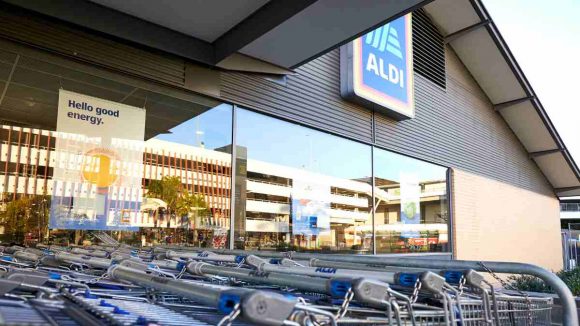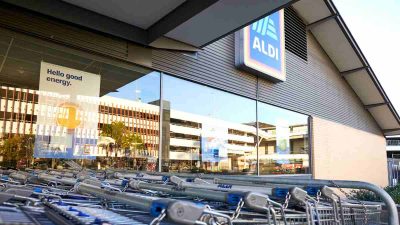Grocery store Aldi is adding 800 new stores to its 2,300 buildings across the US. Aldi’s is growing rapidly and plans to break through barriers by 2028. Aiming to become America’s “fastest-growing grocers,” the company is exploring a few models to make this happen.
One, they focus on attractive product prices; two, they bring the products closer to the neighborhoods to reduce delivery times. It sounds like what Amazon is trying to do, yet they don’t specialize in fresh products.
Over the last decade, Aldi has managed to open an average of a hundred stores each year. In the next five years, to achieve its goal of owning over 3,00 stores, it will be investing $ 9 billion. For the first time, it will also be entering cities like Las Vegas.
Aldi’s affordable prices
Five months ago, Aldi introduced price cuts on food that most families buy during holidays. Customers are seeking high-quality groceries, but with the ever-increasing cost of living worldwide, it’s difficult to cut down on quality to make ends meet.
Aldi has been specializing in this, hoping to lure more customers into avoiding reducing the quality of their grocery shopping. To make this possible, the grocer acquired Southeastern Grocers.
CEO Jason Hart says: “Our ability to bring more Aldi stores to our customers across the Southeast and nationwide is all thanks to our hardworking team members.”
Sustainability a priority for Aldi
In a bold step, Aldi became one of the first major retailers to remove plastic shopping bags from all their stores. “The decision to remove plastic shopping bags will prevent nearly 4,400 tons or
nearly nine million pounds of plastic go into circulation each year,” announced the company.
Hart says they “take our responsibility to lead the industry in sustainability seriously, so our customers don’t have to choose between shopping responsibly and saving money.” In the process, the consumer also saves a dollar or two. “It also helps reduce costs, which we then pass on to our customers.”
With plans for a more sustainable future, Aldi hopes to install environmentally friendly natural refrigeration by 2035. This is to keep their food cold while out for delivery. “This new goal builds on the grocer’s use of environmentally friendly refrigerants in more than 600 stores, helping Aldi save nearly 60% of potential carbon emissions each year,” says Hart.
Should Amazon be worried about Aldi?
Should Amazon look at Aldi’s strategy? Logistics expert and consultant Brittain Ladd recommended that Amazon pilot micro fulfillment centers (MFC) from Brightpick for the last two years.
Ladd posted on his LinkedIn account, shortly after the news broke about Aldi’s announcement to set up nearly a thousand more stores: “MFCs are strategic to Amazon.” Ladd claims he recommended that Amazon open about 500 MFCs to boost the number of physical stores.
Amazon Fresh is not yet able to compete with Walmart in terms of fresh food delivery. Its same-day delivery for fresh groceries is a 2-hour window. “However, Amazon’s executives have a love affair with the technology utilized by Amazon Fresh stores. Unfortunately for Amazon, customers fall in love with stores that offer the best assortment, deals, and shopping experience – not technology,” says Ladd.
Can Amazon get away without physical stores for fresh produce deliveries? Ladd seems not to think so. “The stores are a must-have, in my opinion. 70% of Whole Foods customers leave the stores to finish grocery shopping at another retailer, primarily Walmart. Why? Because Whole Foods stores don’t sell Coke, Pepsi, Cheetos, and other CPG products consumers love.”
For now, it seems Amazon is still in two minds about its grocery strategy, while Aldi is already investing billions in its plan to scale up rapidly.
Ladd believes Aldi is an “execution machine,” and if Amazon doesn’t watch out, it might cost them dearly five years from now. “The biggest obstacle to Amazon becoming a major player in groceries is the lack of leadership,” suggests Ladd.
Photo: Supplied
About the author
Mia is a multi-award-winning journalist. She has more than 14 years of experience in mainstream media. She's covered many historic moments that happened in Africa and internationally. She has a strong focus on human interest stories, to bring her readers and viewers closer to the topics at hand.











